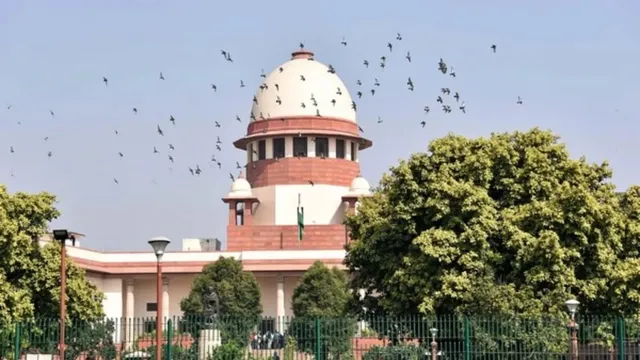- By Talibuddin Khan
- Thu, 12 Dec 2024 05:08 PM (IST)
- Source:JND
Places Of Worship Act SC Hearing: The Supreme Court on Thursday while hearing the pleas challenging the constitutional validity of several provisions of the Places Of Worship Act, 1991, directed all courts in the country not to entertain new suits against the Places Of Worship Act and pass any effective interim or final orders on any lawsuits seeking relief including a survey of religious places under the 1991 law.
"As the matter is sub-judice in this court, we deem it appropriate that no fresh suit would be registered and proceedings are undertaken till further orders of this court," the CJI-led bench said.
ALSO READ: What Is Places Of Worship Act And Why It Has Been Challenged | Explained
A bench comprising Chief Justice Sanjiv Khanna and Justices Sanjay Kumar and K V Viswanathan further sought the Centre's response to the pleas and cross ones in four weeks and granted a further four weeks to other parties to file their rejoinder after the Centre filed its reply.
The Places of Worship Act, 1991 prohibits the filing of a lawsuit to reclaim a place of worship or seek a change in its character from what prevailed on August 15, 1947.
The bench made it clear that it would be examining the "vires (legality), contours and ambit" of the 1991 law and it was imperative to ask other courts to "stay off their hands" till it passed any further orders. "In pending suits, the courts will not pass any effective interim or final order, including order of survey, till further orders," the bench said.
The court's directions faced opposition from several lawyers appearing for the Hindu petitioners, who said that the court should not pass any order without hearing them. However, the CJI said it was quite natural to ask courts not to pass any order as the Supreme Court was hearing the larger issue.
"Can the trial courts overreach the Supreme Court," asked the bench and said the apex court was already dealing with the validity of the law. The bench also appointed nodal counsel to assist it in the hearing of the pleas which would be listed after eight weeks.
ALSO READ: What Is One Nation, One Election? Know Challenges And Benefits Of Simultaneous Polls | Explained
The top court's directions stall proceedings in about 18 lawsuits filed by various Hindu parties seeking a survey to ascertain the original religious character of 10 mosques including Gyanvapi at Varanasi, Shahi Idgah Masjid at Mathura and Shahi Jama Masjid in UP's Sambhal.
The directions came on six petitions, including the lead one filed by lawyer Ashwini Upadhyay, challenging various provisions of the Places of Worship Act, 1991. There are several cross petitions which seek strict implementation of the 1991 law to maintain communal harmony and to preserve the present status of mosques, which sought to be reclaimed by Hindus on the ground that they were temples before invaders razed them.

